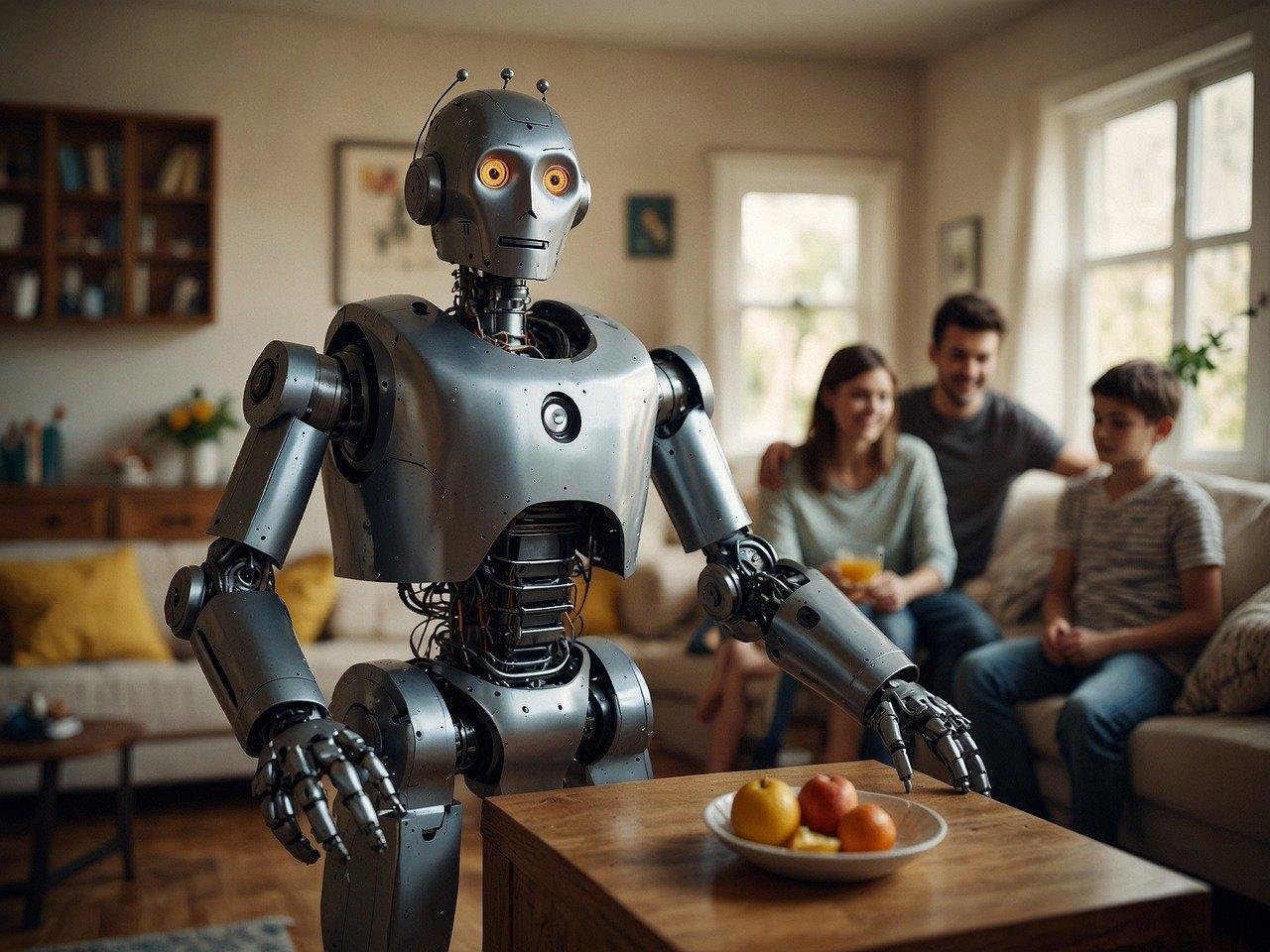Business
Robots Invade the Kitchen: The Cultural Impact of Culinary Automation

Automating food production and preparation holds the potential to transform society on a fundamental level. Food is more than sustenance; it shapes our social interactions and cultural practices.
Automated kitchens are not mere concepts from science fiction. Presently, robots are engaged in a variety of cooking tasks, from flipping burgers to crafting intricate sushi dishes. Artificial intelligence (AI) can even devise recipes based on ingredient compatibility or available items in the kitchen, paving the way for concepts that aim to fully automate high-end culinary experiences.
Initially, the cost of these advanced kitchen technologies has limited their use primarily to businesses, particularly restaurants. However, as advancements continue, the possibility of bringing this technology into homes could significantly impact everyday life.
The influence of food technology echoes historical shifts, such as the introduction of the microwave oven, which dramatically changed meal preparation routines. While this convenience allows for quick meals, it raises concerns about nutritional value and communal cooking experiences.
Without the microwave, individuals might have to interact more during meal times, fostering social connections. Yet, convenience often compromises quality time spent engaging over meals, thereby diminishing relationships and cultural traditions associated with cooking.
It is critical to anticipate the ethical dilemmas that may arise as food technology evolves. California Polytechnic State University’s research, supported by the U.S. National Science Foundation, is currently exploring how AI-based kitchens could affect diverse cultures and societies.
The potential advantages of AI kitchens include enhancing creativity among chefs and alleviating tedious cooking tasks. This efficiency not only allows chefs more time to innovate but also enables families to bond over meals rather than cooking. AI can cater to complex dietary needs at the touch of a button.
Conversely, the decline in home cooking could eliminate vital skills such as creativity and scientific understanding that arise from culinary practices. Cooking serves as a learning environment, teaching essential life skills across various disciplines, from chemistry to mathematics.
Moreover, AI could contribute positively to culinary creativity by enhancing food presentation and recipe development. Nevertheless, it poses risks of cultural dilution, potentially transforming traditional dishes into generic versions that lack true representation.
As automation spreads, the character of neighborhoods and relationships with local dining establishments could shift. The prospect of having meals prepared by robots instead of familiar faces might alter the overall dining experience and cultural identity within communities.
Employment impacts also present a complex challenge. While automation may generate some new positions, the existing workforce in the food service industry faces uncertainty. Many may struggle to acquire new skills, and the transition to overseeing robots may not equate to better job satisfaction.
Questions about AI’s capacity for creativity remain unanswered. If AI can mimic culinary artistry, it raises debates about authenticity in food production, similar to ongoing issues surrounding AI-generated art and music.
On a safety note, robots can enhance food safety by minimizing human error in food preparation. However, the effectiveness of AI in recognizing food spoilage and maintaining hygiene standards is yet to be fully established.
As robotic chefs evolve, physical safety will be paramount to prevent accidents, underscoring the need for stringent safety protocols. The legal complexities surrounding liability in cases of robotic errors could also mirror challenges faced with autonomous vehicles.
Given food’s pivotal role in culture and community life, careful consideration is essential to navigate the implications of technological innovations in kitchens. Balancing the benefits and risks of automation in culinary practices will shape the future of food and society itself.


















